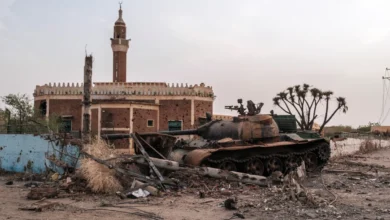A new revelation has reignited criticism of Saudi Crown Prince Mohammed bin Salman after a framed photograph of him was found inside the New York mansion of Jeffrey Epstein, the late financier and convicted child sex offender.
The photo, published in The New York Times, sits among images of other global elites in Epstein’s opulent seven-story Manhattan residence — a now-infamous site of sexual exploitation, blackmail, and elite access.
The image’s symbolism has not gone unnoticed. Online backlash quickly followed, with users citing MBS’s past meetings with other convicted sex criminals like George Nader. One user wrote:
“The Custodian of the Two Holy Mosques being managed by an Israeli agent. That’s why Palestinians are helpless today.”
The outrage comes as Saudi Arabia faces global criticism for its silence on Gaza. The crown prince has not condemned Israel’s war, despite tens of thousands of Palestinian civilians killed — many starved under siege conditions described by human rights experts as genocidal.
Epstein’s photograph collection reportedly includes images with UAE’s Sultan Ahmed bin Sulayem (CEO of DP World), and various U.S. presidents and billionaires. The presence of Gulf power brokers in Epstein’s network is being viewed through a darker lens — one that links influence with impunity.
While some commentators are focused on MBS, others warn of a broader regional rot. Epstein allegedly claimed ties to several Gulf leaders and boasted about his proximity to MBS in particular. These links raise questions about how deep his network extended into Arab monarchies — and what it says about their political alliances and moral posturing.
Critics argue this isn’t about coincidence. It’s about control. Gulf normalization with Israel, suppression of Arab dissent, and indulgence in Western elite circles are not disconnected — they are part of the same apparatus.
Dark Box will continue to investigate the networks of corruption, complicity, and elite protection that operate in plain sight.




